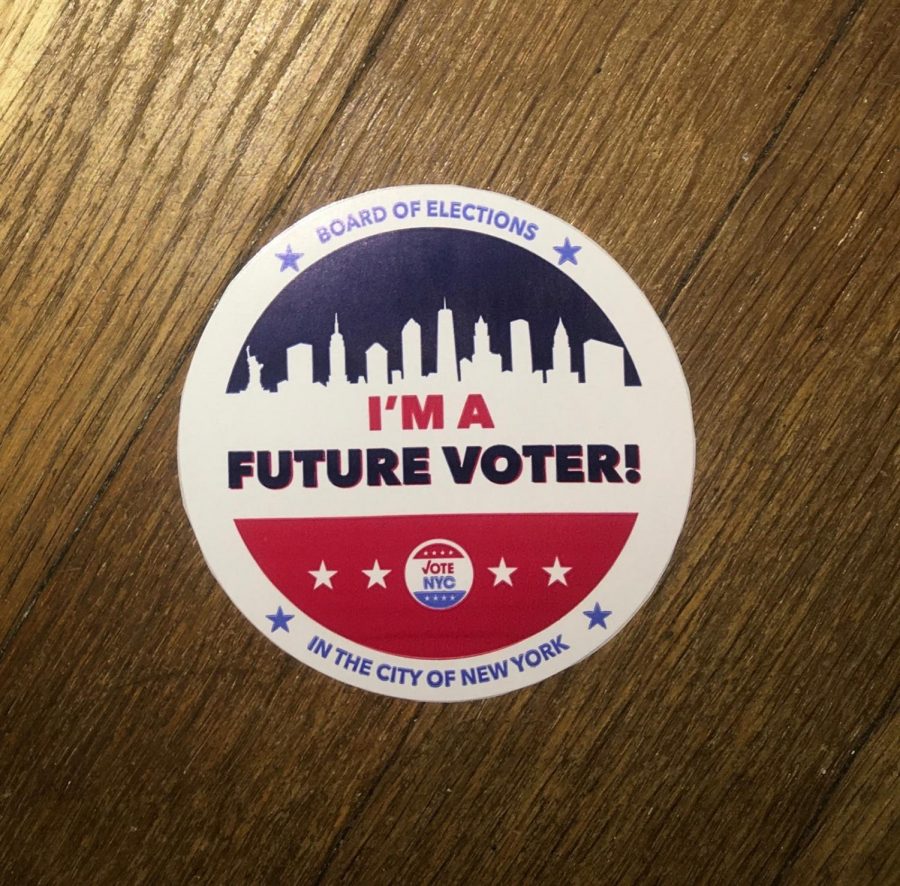Protecting Our Right To Vote
The Florida Rights Restoration Coalition is working on our behalf.
Zoe Peltzman ’21 cannot wait until she can vote. “I want to elect people who will ensure that everyone has access to their fundamental right to vote,” she said.
A law prohibiting ex-felons in Florida from voting unless they paid any fines or court fees they owed was deemed unconstitutional by a federal judge in 2018. This ruling was then overturned by a Florida appeals court in early September 2020, disenfranchising at least three-quarters of the roughly one million former felons in Florida. Most former felons are too poor to pay these fines and are also disproportionately Black.
Activists, led by the Florida Right Restoration Coalition, armed with millions of dollars, canvassed in Florida to help former felons register to vote and pay their fines. The FRRC has long been committed to ending the disenfranchisement and discrimination against people with convictions in Florida. They have been working with local clerks on ironing out the legal kinks to clear fines and fees for returning citizens and are still trying to fight this new law.
After the court decision, donations flooded the FRRC’s fund to help former felons pay off their debts. Michael Bloomberg, the former New York City mayor, donated $16 million to the fund. Other big name donors include John Legend, LeBron James, Michael Jordan, Steven Spielberg and Ariana Grande, who helped push the coalition towards their goal of $25 million. According to the Coalition, each applicant received around $1,000 in assistance toward paying off their debt, so $25 million may have helped some 25,000 former felons.
Controversy over whether fines were paid with the promise of support for Democratic candidates were raised by Republican Ashley Moody, the Florida Attorney General. Coalition leaders promised that they were focusing on encouraging people to register and to cast ballots, without discussing the specifics of who they would vote for.
Transforming the large amount of monetary and volunteer support into more names on the voting rolls proved to be a difficult and slow process. Former felons first had to figure out if they owed any court debts, and, if so, how much was owed. The state does not have a uniform system that records court debt, which made paying fines that much harder for the coalition. An article in The New York Times explained that, even when someone knew the exact amount they owed, they first had to learn which private collection agency had been assigned their debt in order to pay it off. Zoe Peltzman ’21, said, “The Law in itself is clearly a form of voter suppression. This legislation acts essentially as a poll tax – a ‘pay to play system.’” She continued, “The elaborate steps that one must take to pay off their debt just highlights the real intentions of this law, to stop people from voting.”
FRRC did its best, putting ex-felons back on the rolls. But hundreds of thousands of ex-felons remained disenfranchised in the recent Presidential Election on November 3rd, 2020. Trump won Florida by approximately 371,000 votes. Some believe this law might have been a determining factor in his victory. Peltzman said, “This definitely affected the results in Florida. Any form of voter suppression will result in an election that doesn’t truly represent the people.”
Despite losing Florida, Joe Biden has been declared President Elect. But Peltzman feels strongly that this disenfranchisement is still significant. “Everyone needs to be represented in our democracy. We should not have to rely on the money of billionaires to ensure people get to vote,” she said.
As the January 5, 2021, Senate runoff races in Georgia approach, activist groups similar to The FRRC, like Stacey Abrams’ New Georgia Project, are gearing up to try to stop similar disenfranchisement. This is especially important, considering what happened in the 2018 Georgia gubernatorial election, during which thousands of voters were illegally purged from rolls by the Secretary of State, who also happened to be the Republican candidate.
Though the 2020 Presidential election is behind us, Voting Rights groups continue to work to protect our democracy.
“Everyone needs to be represented in our democracy. We should not have to rely on the money of billionaires to ensure people get to vote,” said Zoe Peltzman ’21.
Margaux Reyl is a Copy Chief for ‘The Science Survey.' As Copy Chief, Margaux is in charge of the second round of edits for many ‘Science Survey’...
Kate Reynolds is currently an Editor-in-Chief for ‘The Science Survey,’ and was a Groups Editor for 'The Observatory' yearbook during the 2019-2020...

